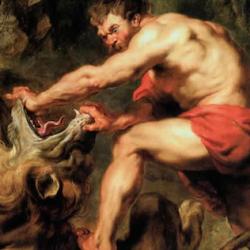Deborah is the only female judge, and the only judge who does anything close to what we would recognizing as “judging.” She is a prophetess, and holds court sitting under a palm tree between Ramah and Bethel (Judges 4:5). She also does what the other Hebrew judges do – leads Israel in war against Gentile oppressors. She agrees to accompany Barak when he goes out to fight against the Canaanites.
In the song she composes after the victory (see the song of the sea, Exodus 15), she describes the effect of her leadership on Israel: “The peasantry ceased, they ceased in Israel, until I, Deborah, arose, until I arose, a mother in Israel” (5:7). Deborah was married to Lappidoth, but we hear nothing about children. How is she a “mother in Israel”?
The context suggests a few possibilities. Barak gathers an army to right against Canaan because of Deborah’s prophecy, so she instigates the movement to deliver the beleaguered peasantry of Israel. She gives them new life by her prophesying. Her leadership also inspires Barak, who is able to muster an army of 10,000, all “sons” of Deborah. More abstractly, she is not only a mother in Israel, but a mother of Israel. Israel had come to the edge of the grave. She gives them a new birth.
As a mother in/of Israel, Deborah is also a new Moses, the nursing father of the exodus generation. She anticipates not only Mary, the mother of Israel incarnate, but the maternal apostle Paul, who labors over the churches until Christ takes form in them. Even male leadership in Israel and the church has a maternal dimension; all are mothers whose painful care in the Spirit continuously gives new life.











